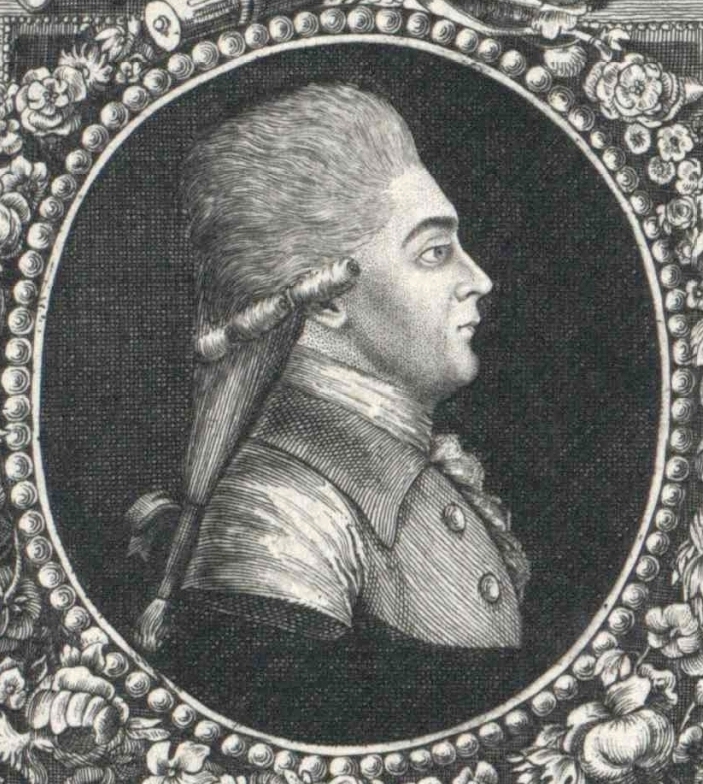The Magic Flute's Second Part on:
[Wikipedia]
[Google]
[Amazon]
("The Labyrinth or The Struggle with the Elements. The Magic Flute's Second Part") is a "grand heroic-comic opera" in two acts composed in 1798 by


 After fighting against fire and water there are still two elements for Pamina and Tamino which are not defeated: the air and the earth. Tipheus tries to divorce the engaged couple and Monostatos tries to force the love of Papagena. Papageno is meeting his parents and siblings.
After fighting against fire and water there are still two elements for Pamina and Tamino which are not defeated: the air and the earth. Tipheus tries to divorce the engaged couple and Monostatos tries to force the love of Papagena. Papageno is meeting his parents and siblings.
Variations for Pianoforte
by Joseph Wölfl, Bavarian State Library, Munich. * {{DEFAULTSORT:Labyrinth, Das Compositions by Peter Winter German-language operas Works based on The Magic Flute Singspiele Operas 1798 operas Operas set in fictional, mythological and folkloric settings
Peter von Winter
Peter Winter, later Peter von Winter, (baptised 28 August 1754 – 17 October 1825) was a German violinist, conductor and composer, especially of operas. He began his career as a player at the Mannheim court, and advanced to conductor. When the ...
to a German libretto
A libretto (Italian for "booklet") is the text used in, or intended for, an extended musical work such as an opera, operetta, masque, oratorio, cantata or Musical theatre, musical. The term ''libretto'' is also sometimes used to refer to the t ...
by Emanuel Schikaneder
Emanuel Schikaneder (born Johann Joseph Schickeneder; 1 September 1751 – 21 September 1812) was a German impresario, dramatist, actor, singer, and composer. He wrote the libretto of Wolfgang Amadeus Mozart's opera ''The Magic Flute'' and was t ...
. The work is in the form of a Singspiel
A Singspiel (; plural: ; ) is a form of German-language music drama, now regarded as a genre of opera. It is characterized by spoken dialogue, which is alternated with ensembles, songs, ballads, and arias which were often strophic, or folk-like ...
, a popular form that included both singing and spoken dialogue. The opera is a sequel of Mozart
Wolfgang Amadeus Mozart (27 January 17565 December 1791), baptised as Joannes Chrysostomus Wolfgangus Theophilus Mozart, was a prolific and influential composer of the Classical period (music), Classical period. Despite his short life, his ra ...
's '' The Magic Flute''.
Performance history
The opera premiered at the suburbanFreihaus-Theater auf der Wieden
The Theater auf der Wieden, also called the Freihaus-Theater auf der Wieden or the Wiednertheater, was a theater located in the then-suburban Wieden district of Vienna in the late 18th century. It existed for only 14 years (1787–1801), but duri ...
in Vienna on 12 June 1798. Schikaneder himself played Papageno, while the role of the Queen of the Night was sung by Mozart's sister-in-law Josepha Hofer-Mayer. Schikaneder was the librettist of Mozart's opera and he was considered to have been "one of the most original and most influential theatre persons of his time". Both artists were reprising their roles from ''The Magic Flute''.
Alexandra Liedtke, the director of the Salzburg Festival production in 2012, interpreted the story and Schikaneder's libretto "as one fthe great fairy tales of history .. in which the emblematic and the playfulness are standing in the limelights".
The opera was then also performed at the Theater an der Wien and the Konzerthaus Berlin (1803), the Opern- und Schauspielhaus Frankfurt (1806), the Staatstheater Nürnberg (1807) and other venues. In 1978, there was a production without spoken dialogue in an unauthentic musical arrangement, conducted by Wolfgang Sawallisch, directed by August Everding, stage design by Jürgen Rose in the Cuvilliés Theatre, Munich, and in September 2002 it was performed at Chemnitz Opera
Theater Chemnitz is the municipal theatre organization in Chemnitz, Germany. Performances of opera, ballet, plays, symphonic concerts, and puppet theatre take place in its three main venues: the Opernhaus Chemnitz (for opera, ballet and musical t ...
.
In August 2012, the opera was presented for the first time at the Salzburg Festival, in the courtyard of the residence of the Prince Archbishop of Salzburg, conducted by Ivor Bolton and directed by Alexandra Liedtke.
In October 2013, the opera was performed in USA for the first time, by New York City's Amore Opera, the small opera company which emerged after Amato Opera closed.
Roles


Synopsis
Goethe's sequel
There is another sequel to the original ''Magic Flute'', also named , a libretto fragment by Johann Wolfgang von Goethe, intended to be set to music by Paul Wranitzky.References
* Branscombe, Peter (1991) , Cambridge Opera Handbooks series, Cambridge University Press. * Brukner, Fritz (1934, ed.) . Verlag Gilhofer & Ranschburg, Vienna. * Buch, David (2004) ", Masonic Opera, and Other Fairy Tales", in ''Acta Musicologica'' 76, 2004. * Henderson, Donald G. (1983) "''The "Magic Flute'' of Peter Winter", in '' Music & Letters'' 64 (3–4), pp. 193–205. * Jahrmärker, Manuela and Waidelich, Till Gerrit (1992, ed.) . Hans Schneider, Tutzing.Further reading
* Waidelich, Till Gerrit (2012) "", in: ''Acta Mozartiana'', 59 (2012), pp. 139–177.External links
Variations for Pianoforte
by Joseph Wölfl, Bavarian State Library, Munich. * {{DEFAULTSORT:Labyrinth, Das Compositions by Peter Winter German-language operas Works based on The Magic Flute Singspiele Operas 1798 operas Operas set in fictional, mythological and folkloric settings